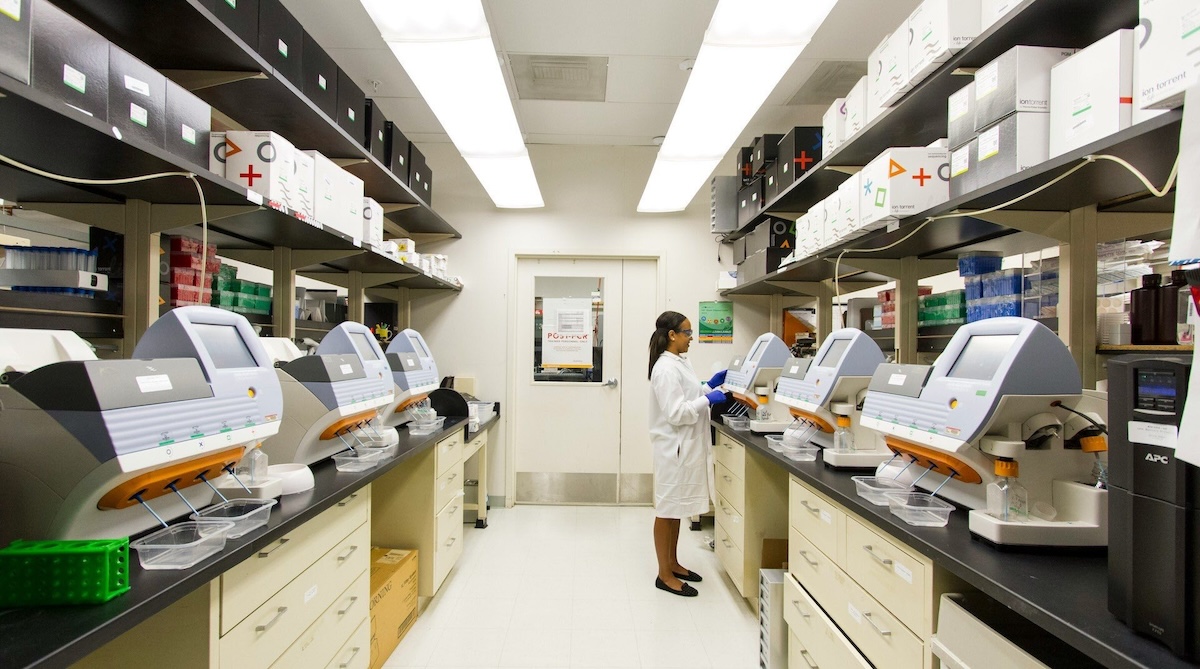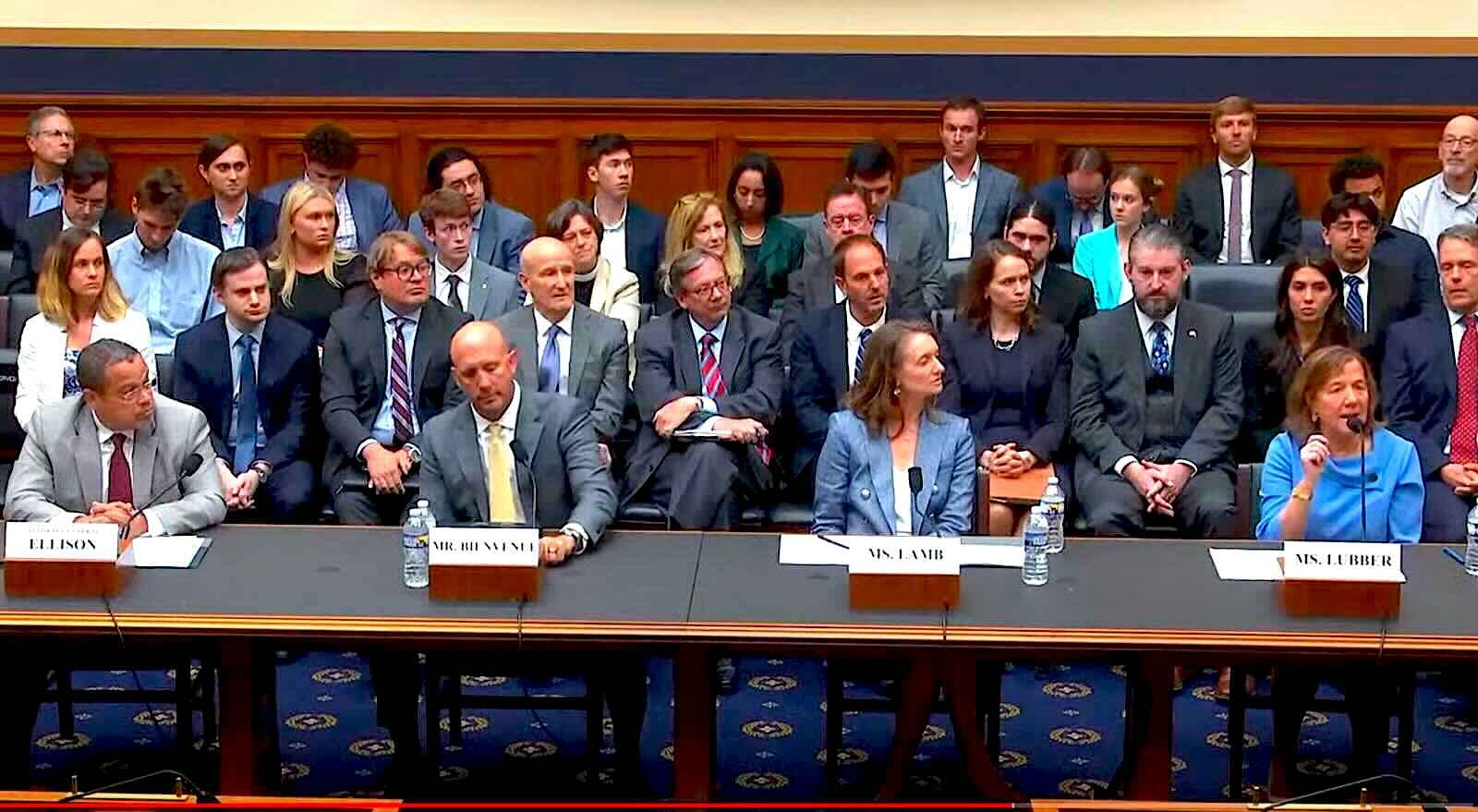Greetings Agents of Impact!
In today’s Brief:
- Roots of Impact’s toolkit of impact incentives
- Greening chemicals
- Measuring stored carbon
- Family offices’ AI dilemma
Featured: Term Sheets
With incentives, Roots of Impact helps companies link impact and finance. When it assessed the impact of global microfinance organizations for its annual Microfinance Index, the customer-research firm 60 Decibels found a 400% difference between the best performing organization and the worst. “Companies have to be directed to achieve impact,” observes Bjoern Struewer of Roots of Impact, the nonprofit catalytic capital manager. “You can really outperform on impact if you have the right incentives in place.” Roots of Impact has been experimenting for eight years with terms that incentivize companies to deepen and broaden their impact, initially by structuring bonus payments called social impact incentives, or SIINCs. One of the biggest takeaways of its new review of impact-linked finance: incentives can be designed into any form of finance, including impact-linked loans and compensation incentives. “We often have this assumption that a company or a project is intrinsically impactful,” Struewer tells ImpactAlpha. “There is no linear path to impact. It’s fluctuating all the time.”
- Positive externalities. In its first impact-incentives transaction, the Swiss Agency for Development and Cooperation set aside a pot of money to pay Mexican diabetes care provider Clinicas del Azucar to deepen its commitment to Mexico’s most vulnerable patients (watch ImpactAlpha’s video interview with Clinicas del Azucar’s Javier Lozano). Without the incentive, Clinicas del Azucar could have shifted its business model to wealthier or urban patients as it expanded its network of diabetes care clinics. It’s about “tweaking enterprises toward better outcomes, not about paying for social interventions,” Roots explains in its report. “It’s a way to monetize positive externalities by creating an additional revenue stream for the enterprise” that encourages them to steer toward impact.
- Managing ‘impact risk.’ Impact incentives have been built into loans, revenue-share agreements, matching funds, and also fund compensation structures as impact investors seek to manage “impact risk.” Fund managers like Beneficial Returns, Balloon Ventures, Iungo Capital and others reward portfolio companies with preferential terms for achieving specified impact targets. “Businesses can develop to perform better or worse on impact in the future,” says Struewer. In the pay-as-you-go solar sector, for example, Zola has opted to cater to middle class and urban customers as a growth strategy. In contrast, M-KOPA has shifted its product offering but has doubled-down on low-income customers, incentivized in part by a $200 million impact-linked debt package.
- Design principles. Greenwashing and other concerns caused originations of ESG- and sustainability-linked bonds to fall by nearly 25% last year from the year earlier. “You could tweak the features a little bit and design them to have concrete and ambitious outcome targets,” says Struewer. “That would give you an impact-linked finance structure at scale.” Roots of Impact is working with the consultancy Dalberg and the Swiss Agency for Development and Cooperation to convene the Impact-Linked Finance Collaborative to help practitioners structure and benchmark effective deals. Roots is soon launching an open-source self-assessment tool based on its design principles for impact-linked finance. “It’s the execution that makes the difference,” Struewer says.
- Keep reading, “With incentives, Roots of Impact helps companies link impact and finance,” by Jessica Pothering on ImpactAlpha.
Dealflow: Low-carbon Transition
Solugen lands a $214 million federal loan guarantee to scale sustainable chemicals production. Solugen uses natural feedstocks such as corn sugar to produce chemicals commonly used in fertilizers, cleaning agents, wastewater treatment, construction and energy production. With a conditional $213.6 million loan guarantee from the US Department of Energy’s Loan Programs Office, Solugen will construct a bigger version of its original Houston bioforge facility in southwest Minnesota. The private company says its bio-based chemicals cost up to 40% less than the petroleum-based inputs they replace, many of which are made overseas. The project “will serve as a model for how innovative technologies can revive American industries and maintain our competitive edge on a global scale,” Solugen’s Sean Hunt said in a statement.
- First of a kind. The 500,000-square-foot Bioforge Marshall facility is a partnership between privately-held Solugen and Chicago-based agribusiness giant ADM. Dextrose from ADM’s adjacent corn-processing complex will be used to make low-carbon organic acids for use in personal care products and industrial processes. DOE’s Loan Programs Office called it “a first-of-its-kind scale-up of an innovative technology” – exactly the type of hard-to-finance project the agency looks to support (for background on FOAK financing, see, “Prime Coalition launches Trellis Climate to plug gaps for first-of-a-kind climate tech projects”).
- Seeing green. DOE called the commitment “the single largest US government investment in bioindustrial manufacturing,” since the Biden administration committed to advancing biotech and biomanufacturing in 2022. The opportunity to green the multi-trillion dollar chemicals market has lured investors: Solugen has raised about $600 million to date from investors including GIC, Baillie Gifford, Temasek, deep tech investor Fifty Years and BlackRock.
Downforce Technologies raises $4.2 million to measure carbon stored in soil. Monitoring soil health and carbon is key to cutting greenhouse gas emissions, but it is complex and expensive. Downforce, based in the UK, uses remote sensing to measure soil carbon without being on site. Downforce says the technology can help farmers, landowners and corporations unlock revenue opportunities. Downforce offers tools to deliver nature-based carbon projects, soil health interventions, and farm emissions data.
- Nature-based solutions. The financing round, led by climate tech venture capital firm Equator, will support Downforce’s expansion. The company’s software platform “should act as a catalyst for increased investment in soil organic carbon globally, particularly in Africa,” says Equator’s Nijhad Jamal. Other investors in the round include Tiverton Agriculture Impact Fund, Dragonfly Enviro Capital, Perivoli Innovations and Clean Energy Finance Corp.
- Share this post.
Dealflow overflow. Investment news crossing our desks:
- FLO, a North American EV charging network operator and equipment developer, secured $136 million in Series E equity funding led by Export Development Canada. (Electronic Autonomy)
- New York-based Collaborative Fund raised $125 million to invest in early-stage climate, health and food businesses. (Craig Shapiro)
- London-based AgDevCo provided a €9 million ($9.6 million) mezzanine loan to Cote d’Ivoire’s cashew nut processor Cashew Coast. (AgDevCo)
- Mumbai-based Arthan Finance scored 500 million rupees ($6 million) from Incofin’s India Progress Fund and the Dell Foundation to expand microlending in India’s underserved regions. (YourStory)
Signals: Family Offices
How climate-friendly family offices are grappling with energy-intensive AI. Nearly half of all family offices globally directly invest in green technologies or plan to do so soon. The wealthy families are also pouring money into data centers and other AI-related infrastructure – a “mega, mega trend,” according to Goldman Sachs’ Ling Cherng Pong at the firm’s recent family office roundtable. That creates “competing priorities,” added her colleague Sara Naison-Tarajano. “An incredible amount of power is needed to fuel these technological innovations.”
- FOMO. More than three in four family offices say they’re likely to invest in generative AI tools over the next two to three years. That makes it the top investment theme, says UBS in its most recent global family office report. Generative AI models, such as OpenAI’s ChatGPT, ingest vast amounts of data and spit out analysis, images, text and videos. That requires gigawatts of electricity. If much of that comes from fossil fuels, the runaway growth of generative AI could sink emission-reductions goals. Microsoft’s greenhouse gas emissions, for example, have risen 30% since 2020 as it invested heavily in new data centers to meet AI processing demand.
- Co-location. Tech and infrastructure investors are racing to find ways to mitigate AI’s climate impacts. Albany, NY-based Soluna Holdings, for example, recently raised $30 million from Spring Lane Capital to develop and operate data centers that are co-located with wind, solar or hydro-powered energy. Crusoe.ai builds data centers near oil fields to take advantage of flared natural gas. Microsoft, already one of the largest buyers of renewable energy, inked a $10 billion deal last month with Brookfield for clean energy to power its growing AI-focused data centers.
- Go deeper.
Agents of Impact: Follow the Talent
Dutch impact investment firm Goodwell Investments becomes a certified B Corp… Nia Impact Capital is looking for an equities analyst… The Miller Center for Social Entrepreneurship seeks a program coordinator in Santa Clara, Calif… Roots of Impact is hiring impact-linked finance associates and senior associates… The American Climate Corps is recruiting a strategic advisor for partnership coordination and a strategic advisor for workforce development.
Common Future has an opening for an impact investments manager and other roles… HSBC is on the hunt for a sustainable finance senior manager in the United Arab Emirates. The US Water Alliance will host a webinar, “Race and water: Tools and strategies to advance racial justice,” Tuesday, June 18… Also on Tuesday, the Brookings Institution is hosting, “Outcomes-based financing: Possibility and promise in global health.”
👉 View (or post) impact investing jobs on ImpactAlpha’s Career Hub.
Thank you for your impact!
– June 17, 2024











